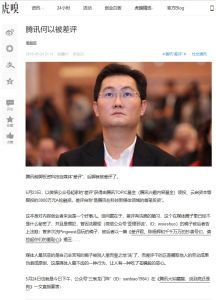Join getAbstract to access the summary!

Join getAbstract to access the summary!
Zhou Chaochen
Tencent Gets a Big Thumbs Down from the Media After a Questionable Investment Decision
The Press Unites Against Tencent's Funding of a Popular Blog Known for Plagiarism
Huxiu, 2018
What's inside?
Chinese online content creators are taking a stand against plagiarism.
Recommendation
Plagiarism in China’s online content industry is like a flock of locusts: massive in number, destructive and costly, and almost impossible to eradicate. But while the public used to shrug off the problem, more and more Chinese content creators are speaking up, taking a stance against piracy and demanding protection for their work. In May 2018, the fight against plagiarism took center stage when Tencent’s content investment fund Topic announced its decision to provide funding for Chaping, a WeChat wemedia account with a large following that is known for ripping off content from other blogs and wemedia accounts. Representatives of news media sites and bloggers protested, publishing collections of evidence against Chaping. Under substantial public pressure, Tencent CEO Ma “Pony” Huateng expressed regret that his team didn’t do its due diligence and promised to review the case. Days later, Chaping issued an official apology and turned down the investment. This rare win for original content creators is an encouraging sign that the content industry may begin to take copyrights more seriously. In this article (which was written before Chaping stepped back from the investment), Zhou Chaochen – senior editor of the tech and business media site Huxiu – explains why Tencent made this public relations blunder and scrutinizes the company’s questionable values. getAbstract recommends this article to content creators and everyone who cares about copyright protection.
Summary
About the Author
Zhou Chaochen is a senior editor at Huxiu, a leading tech and business media site in China.


















Comment on this summary